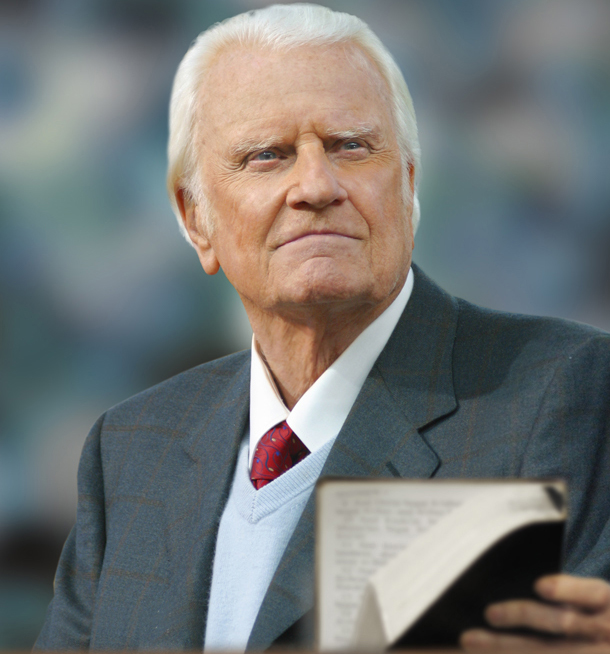
WAKE FOREST, N.C. (BP)–An educational system that has rejected the oneness of God over the last 40 years is to blame for the chaotic culture of the last half of the 20th century, James T. Draper Jr. said during a lecture series March 18-19 at Southeastern Baptist Theological Seminary, Wake Forest, N.C.
“It cannot be denied that the national separation of education and religious faith is directly related to the radical changes that started in the 1960s in this country,” said Draper, president of the Sunday School Board of the Southern Baptist Convention, which this year becomes LifeWay Christian Resources of the SBC. “Since that time, to place your children in public education has been to place them on a battlefield of opinion that is very, very dangerous.”
Christian teachers in the public schools are the key to turning the American educational system back to Christ, Draper said, and Christians must use every means necessary to see that Christianity is presented in its historical context in school curriculums.
Calling for an end to education cloaked in pluralism and neutrality toward God, Draper said education practiced under the fearful respect of God is the answer to restoring stability and strength to an unraveling society.
“The biologist will trace all of life back to him,” Draper envisioned. “The chemist will see in him the great binding mystery that holds together the molecules of matter. The historian will see in him the key to all of history and the philosopher will see the end of all speculation at the foot of the cross.
“The anthropologist will see every tribe, nation and people finding their ultimate destiny in Christ. The mathematician will confess that one plus one plus one equals three in the great triune God and the professor of literature will hold the words of Jesus above Shakespeare, Milton, Dante and Wordsworth as the highest expression of our literature.”
Draper cited Deuteronomy 6:4-9 as God’s plan for education. The verses contain the commandment that the “Lord is One.” Parents are instructed to teach God’s commandments to their children and succeeding generations. These verses, called the Shema, are still recited twice each day by orthodox Jews.
Taking aim at higher education, Draper said few colleges or universities have remained faithful to their original mission.
“You can argue if you will about the need for pluralism and neutrality toward religion, but don’t try to substantiate it by history,” Draper said. “It just isn’t there.”
Draper cited Duke University’s founding bylaws that stated the “aims of Duke University are to assert a faith in the eternal union of knowledge and religion set forth in the teachings and character of Jesus Christ, the Son of God.”
According to Draper, in 1924 chapel attendance was required at the University of North Carolina at Chapel Hill, Yale and Princeton. By 1939, most universities still held voluntary chapel services.
One of the central events leading to the downfall of modern education, Draper said, is the U.S. Supreme Court decision targeting school prayer. Draper said that since 1963, the average SAT scores have dropped considerably, birthrates for unwed mothers have increased, the abortion rate has soared and premarital teenage sexual activity has increased.
Meanwhile, Draper said, the number one problem reported in school today is rape, a far cry from 1963 when talking in class topped the list.
“It’s impossible to have a knowable universe if there is no center of being,” Draper explained.
The great universities of the world were founded in Western society where there was a Christian culture based on the unity of a knowable God, he said, noting when God is taken out of schools, as he has been today, this unity is lost.
Another factor in the separation of God from higher education is the disdain of Jesus Christ, Draper charged. In the name of progress, he said, the university has sought to free people from the shackles of Christianity by doing away with Jesus entirely.
While it’s popular to talk about God, spirits and angels, Draper said, there is a great hostility to discussing the name of Jesus.
Draper said the church must recapture the character of the preaching and teaching ministry if it is to combat the pluralism of the university culture. “I believe that much of the reason of the abandonment of the oneness of God as the basis for all truth is the ambivalence in the pulpit, and the subsequent fall of the minister into disrespect in our society,” he said.
Once the pulpit is reclaimed, Draper said, the universities can be claimed for Christ as well. “When the oneness of God is preached in the pulpit, and when this is linked to education in the universities, a knowable universe is revealed,” he said.
Draper said Christians must challenge society’s pluralistic ideology by evangelizing the nation for Christ. He said Christianity was born in a pluralistic setting and can continue to grow in such a setting.
“It is true in the academy as in all other places that if Christ be lifted up, he will draw all men unto himself,” Draper said.
Draper served as the guest lecturer for Southeastern’s annual Kendrick-Poerschke Lectures in Christian Education. The lecture series was established in 1983 to address educational dimensions in the ministry of the church and is supported by a fund established by Professor Emeritus Robert E. and Katherine Poerschke in honor of their parents.
As part of the lecture series, representatives from LifeWay Christian Resources of the Southern Baptist Convention led several workshops dealing with Christian education in the church, explained current Sunday school literature, and consulted with students about various Christian educational programs. Among the workshops offered were: “Overview of Sunday School Board Curriculum,” “Growing Churches Through Discipleship” and “Designing a Bible Study Lesson.”














